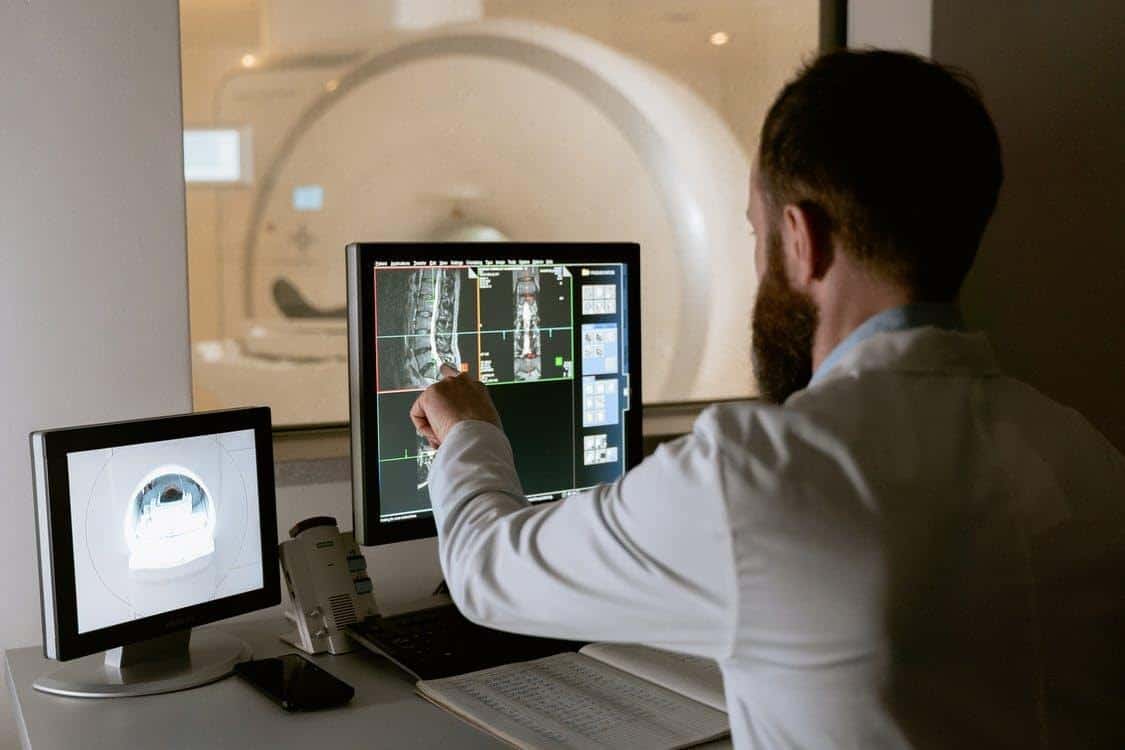
Technology is rapidly permeating every industry and sector worldwide, and healthcare is by no means immune to this wave of innovation. In fact, healthcare is one of the sectors poised to witness groundbreaking transformations and a strategic shift to tech-driven processes.
Technology supports superior accuracy, precision, and efficiency in disease detection to improve patient care experiences and outcomes. Healthcare practitioners and their employers are stepping into the digital age that demands robust agility to embrace innovations. Digital tools and technologies support quality patient care with dynamic advancements that allow real-time health monitoring.
For instance, wearable medical devices, e-health, telemedicine, 3D printing, chatbots, and other advancements offer undeniable support and transparency. It’s not an exaggeration to state that the future healthcare professions will demand tech-driven skills and specialized IT expertise.
Healthcare professionals are rapidly adapting to technological advancements and refining their skills to speed up implementation. Keep reading to explore the skills and IT expertise that will prove monumental for healthcare practitioners in the years to come.
Digital Adaptability & Agility
Before we approach specific technologies and devices, it’s crucial to emphasize the need for digital adaptability. It is the most significant skill for healthcare practitioners to coexist with machine learning algorithms and telemedicine advancements.
Innovations create scores of advantages, but they also create disruptions. They dismantle traditional healthcare models that have existed for decades, forcing a dynamic shift that makes certain skills redundant. Coping with such chaos and relearning conventional practices with a digitalized approach demands agility, adaptability, and flexibility.
Physicians, surgeons, and clinical psychologists with years of practice and experience find themselves struggling to embrace tech-driven processes. Nurses, lab technicians, and healthcare administrators also face similar struggles while shifting to digitalized processes. Practitioners must prioritize learning and explore an online course for health professionals to build digital literacy.
The e-learning environment is ideal for healthcare professionals to balance their grueling schedules and make time for learning. Today, it’s much easier to build IT expertise and become digitally literate without undertaking extensive commitments. A few hours of your time are enough to help you catch up with industry-specific innovations and implement your learning in clinical settings.
Building digital adaptability and agility are crucial for the pace of healthcare innovations that is likely to escalate.
Working with Data-Driven Insights
Artificial Intelligence (AI) and machine learning algorithms hold remarkable potential to generate valuable insights. These insights streamline all healthcare data handling and processing tasks by developing accurate patient analyses and are innovating at lightning speed with accuracy.
Nurses, physicians, and healthcare administrators must develop AI-friendly expertise to work with data-driven insights. Data intelligence is paramount in aiding practitioners with a timely and accurate diagnosis, disease prediction, and prevention. AI is poised to transform cancer screening and prevention, allowing patients and medical professionals a stronger fighting chance.
Big data is another powerful trend that is innovating data handling and patient care analysis in clinical settings. Big data empowers healthcare facilities with dynamic predictive models to improve operational efficiency. For instance, big data solutions offer accurate predictions on patient volume and hospital stays. This input allows administrators to streamline room occupancy and make necessary preparations to prevent disruptions.
Big data insights will play a prominent role in determining clinical staffing needs and skill shortages as hospitals and clinics struggle to embrace big data insights in their day-to-day operations effectively. Therefore, there’s an increased demand for healthcare administrators and professionals with data analytics expertise and training.
Embracing Automation
Automation is a dynamic trend observed in industry sectors worldwide. Compared with other technologies, automation has a less stressful adaptation process as it frees up resources and reduces human effort. Nurses, doctors, and other medical professionals must embrace automation to create advantages for themselves and their patients.
For instance, AI-driven automation solutions are rapidly taking over most administrative responsibilities delegated to nurses and physician assistants. These responsibilities include streamlining medical tests, taking notes, conducting screenings, scheduling medications, and examining vital signs. AI-driven solutions offer the potential to enhance patient care quality and boost treatment outcomes.
Many AI solutions help enhance screening and diagnosis and improve medical imagery and analysis. However, there’s a dire need for medical professionals to embrace ethical standards and practices while using AI-driven solutions. Professionals must educate themselves in using data analysis and insights without compromising patient privacy.
Adjusting to Digital Health & Telemedicine Trends
We are rapidly moving towards the futuristic age of digital health and telemedicine. The term digital healthcare covers a broad array of solutions, including wearable devices, digital diagnosis, and telemedicine.
It’s crucial to understand that these trends respond to healthcare consumers’ demands for increased convenience, transparency, and accessibility. Patients demand quality care and transparency with reduced healthcare costs and inconveniences. Digital technologies, such as wearable devices and telemedicine allow patients to receive care in the comfort of their homes.
Naturally, these innovations are reinventing traditional healthcare practices with a shifting focus to enhanced patient care and accessibility. Medical practitioners must adjust to the shift of digital health by building their expertise in data management and analysis. For instance, physicians and nurses must learn how to analyze patient-generated data obtained from wearable devices.
Clinicians must build their interpretational abilities to use digital pill monitoring and smartphone-enabled diagnostic solutions. Professionals must develop IT expertise to use digital health solutions to create highly personalized treatment plans. The future of healthcare is headed towards remote patient care and disease management, which demands robust digital literacy and data-driven skills.
Telemedicine allows accessibility by connecting patients and clinicians through video conferencing and smartphone-enabled applications. Practitioners must adapt to these innovations to advance their careers and enhance patient care quality.
Learning the Use of Virtual & Augmented Reality
Virtual Reality (VR) and Augmented Reality (AR) offer scores of advantages to clinicians and their patients. These technologies facilitate medical training, disease diagnosis, and timely interventions to save lives and terminate life-threatening illnesses.
For instance, VR technologies allow heart surgeons to identify the risk factors of congenital heart 3D mapping. Practitioners also use VR to build patient awareness by offering them a virtual tour of their underlying medical condition. VR and AR solutions are highly effective at managing and eliminating pain and preventing chronic illnesses.
Conclusion
The future of healthcare is grounded in digital innovation and technology acquisition. Clinicians, nursing leaders, and healthcare administrators must embrace digital literacy to stay competitive and enjoy high marketability. Healthcare systems and hospitals must prioritize IT-driven skills and digital expertise to deliver innovative patient care experiences.




